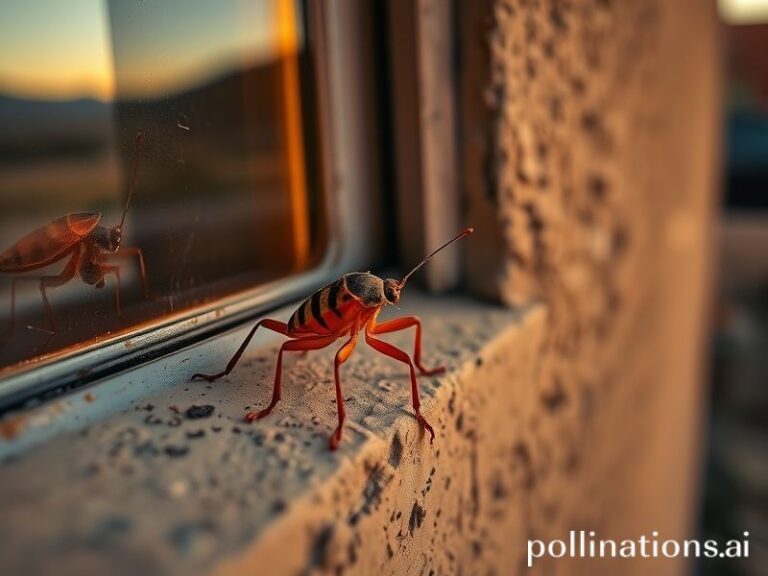Global Brains, Local Hints: How the NYT Connections Puzzle Unites (and Exploits) a Fractured World
The planet is ending, but first let us sort “NYT Connections Hints September 8” into tidy color-coded rows. Somewhere between melting permafrost and algorithmic doom-scrolling, a few million of us woke up this morning to the same digital Rosetta Stone: the New York Times’ daily word-grid, whispered across time zones by caffeine-powered group chats from Lagos to Lima. If the world is indeed hurtling toward a collective heat death, at least we can agree on which four-word cluster belongs under “Things With Shells.”
From a satellite’s-eye view, the phenomenon is instructive. At 00:01 UTC the puzzle drops; by 00:07 a teenager in Seoul has already reverse-engineered the categories with the bored efficiency of someone who has never known dial-up. An Australian insomniac posts a spoiler-tagged screenshot captioned “got the yellows in 2 guesses, send help,” while an Italian nonna screenshots the same grid, annotates it in WhatsApp with hand-drawn arrows, and forwards it to the extended family like a Vatican encyclical. Borders dissolve; geopolitics pauses. For roughly six minutes the only superpower that matters is pattern recognition.
Of course, the categories themselves are an anthropological goldmine. September 8’s grid, decoded by the hive mind before most of North America finishes its first yawn, featured:
• Words that can follow “Money” (LAUNDER, SHOT, ORDER, MARKET) – an accidental syllabus for late-stage capitalism.
• Things that are pickled (CUCUMBER, ONION, EGO, HERRING) – the last one a cruel reminder that even Scandinavian self-esteem comes brined in vinegar.
• Pasta shapes (ORECCHIETTE, PENNE, BOWTIE, SHELL) – carbs as lingua franca.
• And a rogue quartet of amphibians masquerading as French delicacies, because why not troll the bourgeoisie at breakfast.
Each solved grid is a miniature Bretton Woods of consensus: we decide, collectively, that “CASH” belongs with “FLOW” rather than “COW,” and the global economy shudders on, reassured that someone, somewhere, still believes in categories.
Yet the hints ecosystem is where the true dark comedy unfurls. A cottage industry of spoiler sites, Twitch streamers, and Substack prophets has sprung up like mushrooms on the corpse of print media. Their business model is elegantly parasitic: repackage the Times’ free content, garnish with pop-up ads for VPNs and meal kits, and collect affiliate crumbs. One Parisian startup even offers a €9.99/month “Premium Hint” tier—paywalling the very concept of lateral thinking. The French, God bless them, have monetized epiphanies.
Meanwhile, state actors watch bemused. The NSA’s XKeyscore almost certainly flags sudden spikes in searches for “octopus plural,” but analysts can’t decide whether it’s a coded ISIS directive or just another Tuesday. In Beijing, the Great Firewall blocks the NYT outright, so resourceful netizens circulate PDFs via WeChat moments titled “Harmonized Brain Training.” The censorship engine dutifully scrubs any mention of “Tiananmen,” but allows “ROTINI,” presumably because carbs are politically neutral.
Back on Earth, psychologists warn that our dopaminergic obsession with tidy quadrants is just displacement activity for chaos we refuse to fix. Climate scientists note that the collective kilowatts burned by hint-seekers could power Reykjavik for a week, but concede the irony is delicious: we’re literally cooking the planet to guess “Types of Cheese” faster.
And yet, for all the gallows humor, there is something almost touching in the synchrony. At 07:46 local time, a Syrian refugee in Berlin solves the puzzle while waiting for an asylum hearing. At 07:46:12, a retiree in Ohio does the same over oatmeal. Their realities could not differ more, but for one fragile moment they occupy the same cognitive Venn diagram. The puzzle, in its ruthlessly neutral way, offers the thinnest of bridges across the chasm—proof that even in a world fracturing along every conceivable fault line, we can still agree that “MOLLUSK” does not belong with “MOLLIFY.”
So here is your international dispatch: the apocalypse will be gamified, monetized, and served with banner ads. But before the lights go out, humanity will pause—just long enough to sort its final words into neat colored boxes, hit “Submit,” and share the screenshot one last time.







